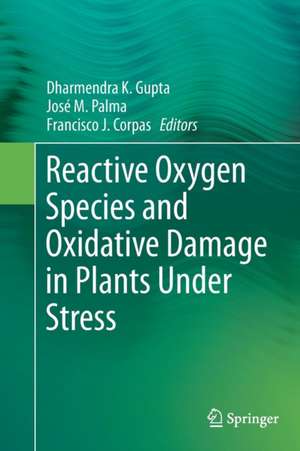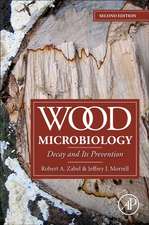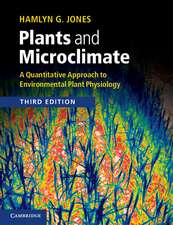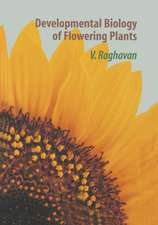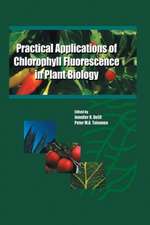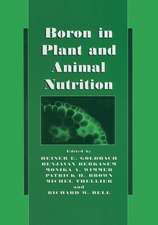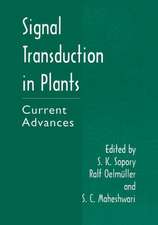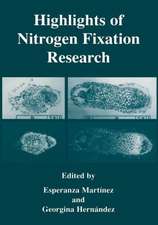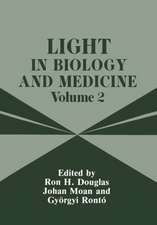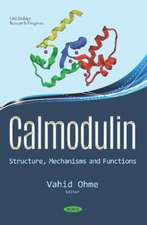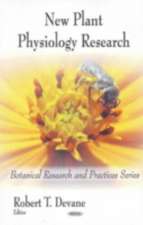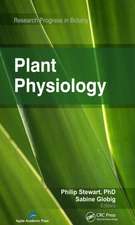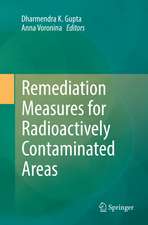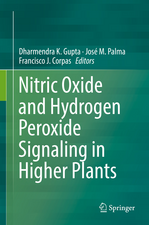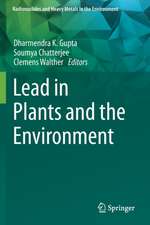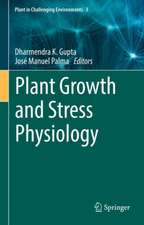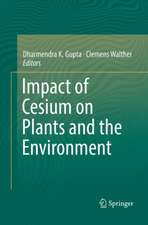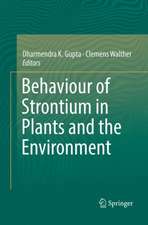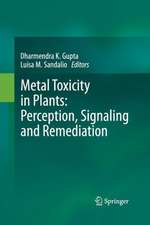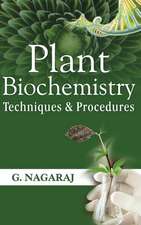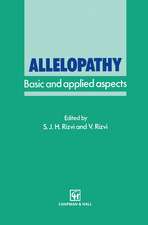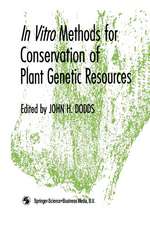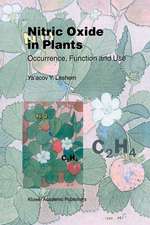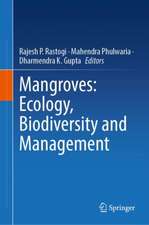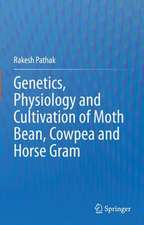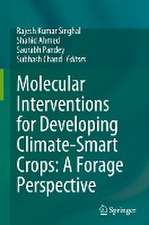Reactive Oxygen Species and Oxidative Damage in Plants Under Stress
Editat de Dharmendra K. Gupta, José M. Palma, Francisco J. Corpasen Limba Engleză Paperback – 22 oct 2016
In plants, as in all aerobic organisms, ROS are common by-products formed by the inevitable leakage of electrons onto O2 from the electron transport activities located in chloroplasts, mitochondria, peroxisomes and in plasma membranes or as a consequence of various metabolic pathways confined in different cellular loci. Environmental stresses such as heat, cold, drought, salinity, heavy-metal toxicity, ozone and ultraviolet radiation as well as pathogens/contagion attack lead to enhanced generation of ROS in plants due to disruption of cellular homeostasis. ROS play a dual role in plants; at low concentrations they act as signaling molecules that facilitate several responses in plant cells, including those promoted by biotic and abiotic agents. In divergence, at high levels they cause damage to cellular constituents triggering oxidative stress. In either case, small antioxidant molecules and enzymes modulate the action of these ambivalent species.
| Toate formatele și edițiile | Preț | Express |
|---|---|---|
| Paperback (1) | 948.61 lei 6-8 săpt. | |
| Springer International Publishing – 22 oct 2016 | 948.61 lei 6-8 săpt. | |
| Hardback (1) | 954.77 lei 6-8 săpt. | |
| Springer International Publishing – 15 sep 2015 | 954.77 lei 6-8 săpt. |
Preț: 948.61 lei
Preț vechi: 1156.84 lei
-18% Nou
Puncte Express: 1423
Preț estimativ în valută:
181.54€ • 188.83$ • 149.87£
181.54€ • 188.83$ • 149.87£
Carte tipărită la comandă
Livrare economică 15-29 aprilie
Preluare comenzi: 021 569.72.76
Specificații
ISBN-13: 9783319372976
ISBN-10: 3319372971
Pagini: 370
Ilustrații: XII, 370 p. 30 illus., 23 illus. in color.
Dimensiuni: 155 x 235 mm
Greutate: 0.54 kg
Ediția:Softcover reprint of the original 1st ed. 2015
Editura: Springer International Publishing
Colecția Springer
Locul publicării:Cham, Switzerland
ISBN-10: 3319372971
Pagini: 370
Ilustrații: XII, 370 p. 30 illus., 23 illus. in color.
Dimensiuni: 155 x 235 mm
Greutate: 0.54 kg
Ediția:Softcover reprint of the original 1st ed. 2015
Editura: Springer International Publishing
Colecția Springer
Locul publicării:Cham, Switzerland
Cuprins
Production sites of reactive oxygen species (ROS) in organelles from plant cells.- What do the mitochondrial antioxidant and redox systems have to say under salinity, drought and extreme temperature?.- ROS as key players of abiotic stress responses in plants.- Redox regulation and antioxidant defence during abiotic stress: What have we learned from Arabidopsis and its relatives?.- ROS signaling: Relevance with site of production and metabolism of ROS.- Heavy metal-induced oxidative stress in plants: Response of the antioxidative system.- Arsenic and chromium induced oxidative stress in metal accumulator and non-accumulator plants and detoxification mechanisms.- Phytochelatin and oxidative stress under heavy metal stress tolerance in plants.- General roles of phytochelatins and other peptides in plant defense mechanisms against oxidative stress/primary and secondary damages induced by heavy metals.- Role of polyphenols as antioxidants in native species from Argentina under drought and salinization.- Reactive oxygen species and plant disease resistance.- Modulation of the ascorbate-glutathione cycle antioxidant capacity by post-translational modifications mediated by nitric oxide in abiotic stress situations.- ROS-RNS-phytohormones network in root response strategy.- Relationship between changes in contents of nitric oxide and amino acid particularly proline in plants under abiotic stress.- Transgenic plants and antioxidative defense: Present and future?.
Textul de pe ultima copertă
This book provides detailed and comprehensive information on oxidative damage caused by stresses in plants with especial reference to the metabolism of reactive oxygen species (ROS).
In plants, as in all aerobic organisms, ROS are common by-products formed by the inevitable leakage of electrons onto O2 from the electron transport activities located in chloroplasts, mitochondria, peroxisomes and in plasma membranes or as a consequence of various metabolic pathways confined in different cellular loci. Environmental stresses such as heat, cold, drought, salinity, heavy-metal toxicity, ozone and ultraviolet radiation as well as pathogens/contagion attack lead to enhanced generation of ROS in plants due to disruption of cellular homeostasis. ROS play a dual role in plants; at low concentrations they act as signaling molecules that facilitate several responses in plant cells, including those promoted by biotic and abiotic agents. In divergence, at high levels they cause damage to cellular constituents triggering oxidative stress. In either case, small antioxidant molecules and enzymes modulate the action of these ambivalent species.
In plants, as in all aerobic organisms, ROS are common by-products formed by the inevitable leakage of electrons onto O2 from the electron transport activities located in chloroplasts, mitochondria, peroxisomes and in plasma membranes or as a consequence of various metabolic pathways confined in different cellular loci. Environmental stresses such as heat, cold, drought, salinity, heavy-metal toxicity, ozone and ultraviolet radiation as well as pathogens/contagion attack lead to enhanced generation of ROS in plants due to disruption of cellular homeostasis. ROS play a dual role in plants; at low concentrations they act as signaling molecules that facilitate several responses in plant cells, including those promoted by biotic and abiotic agents. In divergence, at high levels they cause damage to cellular constituents triggering oxidative stress. In either case, small antioxidant molecules and enzymes modulate the action of these ambivalent species.
Caracteristici
This edited volume concentrates the latest research on the role of Reactive Oxygen Species in plant stress physiology Special attention is given to the metabolism of Reactive Oxygen Species The topic of this book is particularly relevant to scientists interested in plant biotechnology
